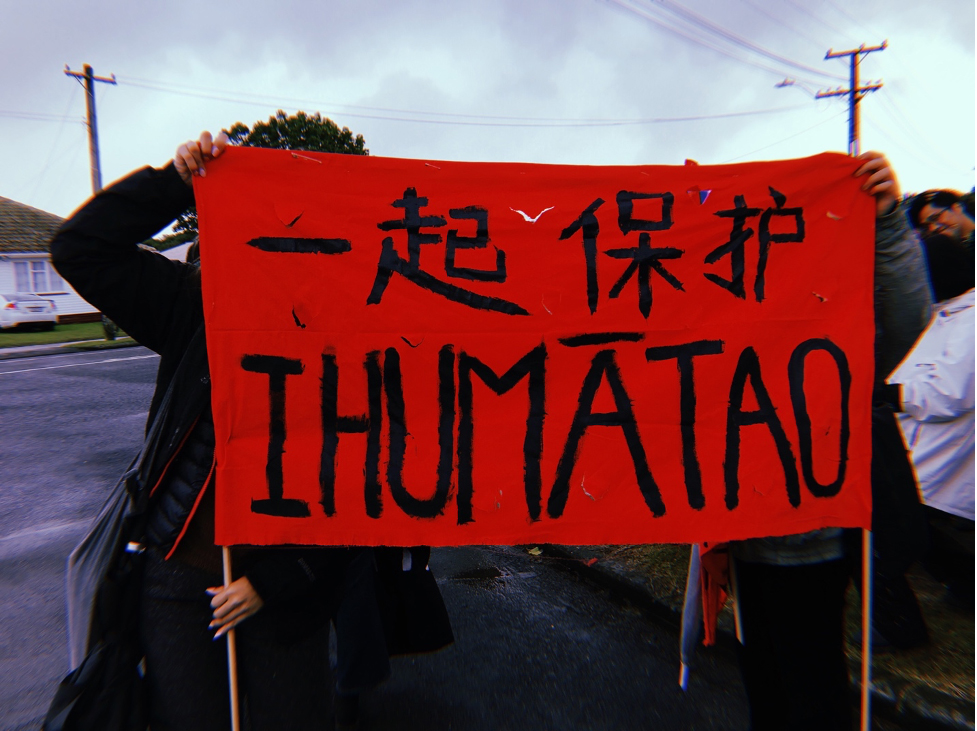
Juanita Stephen
Juanita Stephen
Juanita Stephen is a PhD candidate in York University’s Gender, Feminist and Women’s Studies Program (GFWS). Her research explores the development of care practices in the Black diaspora, particularly their relationship to the various histories of colonization, genocide, and slavery through which they persist. Looking to the clinical recording practices of care workers, personalized archival albums, and a family group chat as primary sites of inquiry, her dissertation considers how care is constructed, enacted, withheld and (re)inscribed through language. Guided by more than 15 years of direct service, teaching, and research in Child and Youth Care, and informed by multiple Black feminist traditions, Stephen merges the personal, the theoretical, and the practical in her work to develop an auto-theoretical, research-creation doctoral project and a praxis of care she calls care-full writing. Stephen is the recipient of an Ontario Graduate Scholarship (2021-22).
Mengzhu Fu
Bridging pedagogy and praxis: diasporic Chinese solidarity with Indigenous sovereignty movements in Aotearoa and northern Turtle Island
Under conditions of ongoing colonization and Indigenous resurgence, non-Indigenous people of colour had to confront their responsibilities to Indigenous peoples in Aotearoa (aka. New Zealand) and northern Turtle Island (aka. Canada). In the past two decades, there has been growing activism from Chinese diasporas in solidarity with Indigenous sovereignty and decolonization movements. The research aims to strengthen and develop strategies for pedagogy and political organizing for Chinese activists and organisations to take collective responsibility as treaty people/settlers of colour in the restoration of Indigenous sovereignty and rematriation of Indigenous land (Koleszar-Green 2018; Jackson 2021). Using qualitative and arts-based methods, this project will bring Chinese diasporic activists in conversation to explore the possibilities of transnational mutual learning. I look across Canada and New Zealand due to the shared histories and enduring structures of colonialism, Sinphobia, and early Chinese-Indigenous relationships to reckon with the transnational and place-based processes of colonization and decolonization.

This photo was taken in 2019 at an Indigenous-led land occupation at Ihumātao, a sacred area of Māori land that holds significance from the beginnings of Māori arrival to Aotearoa. The banner says “Protect Ihumātao together” and it was part of a contingent of Asians who supported the occupation to protect Ihumātao from private housing developments. Link: facebook.com/protectihumatao/

Kanishka Sikri
Kanishka Sikri
Kanishka Sikri (kanishkasikri.com) is a writer/theorist/phd candidate thinking about violability: the practice that marks certain lives, bodies, worlds to the possibility of violence. Her SSHRC funded research, ‘making violable bodies,’ is concerned with a particular arm of this insidious beast—sexualized racial violence. As a system, violability girdles racialized women into the caricature of being violable and dependent to a series of violations, and thus not registered as violation but instead normal on their bodies. As a practice, racialized sexual violence becomes an implausibility, normalized, disappeared; for rape does not make sense nor compute on ‘coloured’ bodies that are deemed of negative value. This study proposes that on racialized women, violation is both stitched and camouflaged—it becomes impossible to violate an already (constantly) violable subject. Kanishka’s hope is that by abandoning the idea of violence as one act of rape, punch in the gut, or slap on the face, and shifting to the constellations of violence that take place across generations and globes, we may be able to unmask violability’s sly, omnipresent operation and live a new freedom in our present.

Learn More
The Graduate Program in Gender, Feminist & Women’s Studies at York is an exciting environment to pursue innovative, socially engaging, career-ready education. Contact our Graduate Program Assistant to learn more.
